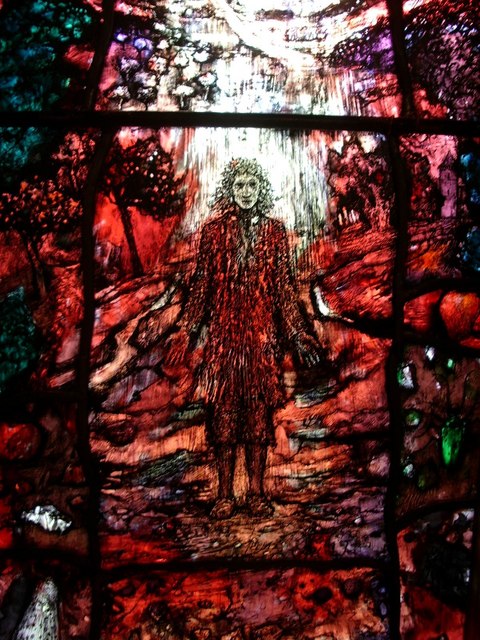Had we not loved ourselves at all, we could never have been obliged to love anything. So that self-love is the basis of all love.

"Thomas Traherne" Master of Arts (Oxbridge)/MA (; 1636 or 1637 – ca. 27 September 1674) was an English poet, clergyman, theologian, and religious writer. Little information is known about his life. The intense, scholarly spirituality in his writings has led to his being commemorated by some parts of the Anglicanism/Anglican Communion on 10 October (the anniversary of his burial in 1674) or on September 27.
The work for which Traherne is best known today is the Centuries of Meditations, a collection of short paragraphs in which he reflects on Christian life and ministry, philosophy, happiness, desire and childhood. This was first published in 1908 after having been rediscovered in manuscript ten years earlier. His poetry likewise was first published in 1903 and 1910 (The Poetical Works of Thomas Traherne, B.D. and Poems of Felicity). His prose works include Roman Forgeries (1673), Christian Ethics (1675), and A Serious and Patheticall Contemplation of the Mercies of God (1699).
If you enjoy these quotes, be sure to check out other famous clergy! More Thomas Traherne on Wikipedia.Certainly Adam in Paradise had not more sweet and curious apprehensions of the world, than I when I was a child.
This moment exhibits infinite space, but there is a space also wherein all moments are infinitely exhibited, and the everlasting duration of infinite space is another region and room of joys.
To love one person with a private love is poor and miserable: to love all is glorious.
Is it not strange, that an infant should be heir of the whole world, and see those mysteries which the books of the learned never unfold?
More company increases happiness, but does not lighten or diminish misery.
Happiness was not made to be boasted, but enjoyed. Therefore tho others count me miserable, I will not believe them if I know and feel myself to be happy; nor fear them.
Your enjoyment of the world is never right, till every morning you awake in Heaven: see yourself in your Father's palace; and look upon the skies, the earth, and the air as celestial joys: having such a reverend esteem of all, as if you were among the angels.
To think the world therefore a general Bedlam, or place of madmen, and oneself a physician, is the most necessary point of present wisdom: an important imagination, and the way to happiness.
Copyright © 2024 Electric Goat Media. All Rights Reserved.